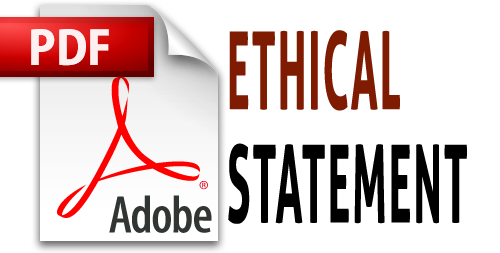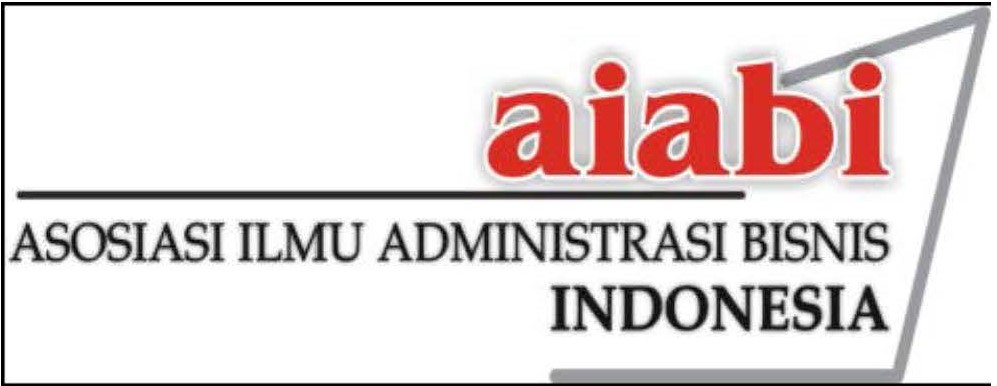MODAL SOSIAL DAN RESILIENSI DALAM MENGHADAPI PANDEMI COVID-19: STUDI KASUS PT.VENUS PRIMA SENTOSA
Abstrak
This study aims to identify a family firm’s resources to survive during the crisis, especially the covid-19 pandemic crisis. This study undertakes a case study in PT Venus Prima Sentosa, owner of Roti Unyil Venus, a specialty culinary gift from Bogor, which has been in the business for 30 years. The study uses a qualitative approach with an in-depth interview and desk study research as data collection methods. Data is analyzed using a resource-based view and social capital with relational, cognitive, and structural dimensions. The results identify that internal and external social capital has contributed to the company’s resiliency when facing with COVID-19 pandemic crisis. Internal social capital consists of trust and respect between family members and employees. Meanwhile, the external social capital consists of suppliers’ loyalty, cooperation with related businesses, and compliance with government rules during the COVID-19 pandemic. Hopefully, these results can help other business owners strengthen their social capital to gain competitive advantage and business resilience, especially in the food industry.
Penelitian ini bertujuan untuk megidentifikasi sumber daya yang dimiliki sebuah perusahaan keluarga agar dapat bertahan di masa krisis, terutama krisis akibat pandemi covid-19. Penelitian ini melakukan studi kasus pada PT Venus Prima Sentosa, pemilik usaha Roti Unyil Venus, makanan oleh-oleh khas Kota Bogor yang telah beroperasi selama 30 tahun. Metode penelitian kualitatif dengan teknik pengumpulan data melalui wawancara mendalam dan pengolahan data sekunder. Analisis data menggunakan pendekatan resources-based view dan modal sosial dengan dimensi relasional, kognitif dan struktural. Hasil penelitian menemukan modal sosial internal dan modal sosial eksternal berperan dalam keberhasilan perusahaan melalui krisis akibat pandemi covid-19. Modal sosial internal terdiri dari relasi kepercayaan dan saling hormat antar anggota keluarga dan karyawan. Modal sosial eksternal bersumber pada loyalitas pemasok, kerjasama dengan usaha sejenis, serta kepatuhan pada peraturan pemerintah terutama di masa krisis pandemic covid-19. Penelitian ini dapat mendorong pelaku usaha, khususnya di industri makanan, untuk memperkuat modal sosial sebagai salah satu sumber daya dalam membentuk keunggulan bersaing dan membentuk resiliensi usaha.
Kata Kunci
Teks Lengkap:
PDFReferensi
Akram, M. U., Ghosh, K., & Joseph, R. P. (2020). External knowledge sourcing and innovation in family firms: How and why absorptive capacity and family social capital matter. VINE Journal of Information and Knowledge Management Systems, 51(3), 438–460. https://doi.org/10.1108/VJIKMS-09-2019-0143
Barney, J. (1991). Firm resources and sustained competitive advantage. Journal of management, 17(1), 99-120. https://doi.org/10.1177/014920639101700108
Bhamra, R., Dani, S., & Burnard, K. (2011). Resilience: The concept, a literature review and future directions. International Journal of Production Research, 49(18), 5375–5393. https://doi.org/10.1080/00207543.2011.563826
Budiarti, I. (2021). The Influence of Social Capital on Innovation Capabilities and Its Relation to Radical and Local Innovation Capabilities (Preliminary Study on Public Companies in Indonesia). AdBispreneur: Jurnal Pemikiran Dan Penelitian Administrasi Bisnis Dan Kewirausahaan, 6(1), 6. https://doi.org/https://doi.org/10.24198/adbispreneur.v6i1.29321, hal. 41-51 41
Burhan, F. A. (2020). Bisnis Anjlok akibat Pandemi Corona, UMKM Bisa Ubah Strategi Usaha – Startup. Retrieved from http://www.katadata.co.id
Cassia, L., & Minola, T. (2012). Hyper-growth of SMEs: Toward a reconciliation of entrepreneurial orientation and strategic resources. International Journal of Entrepreneurial Behaviour and Research, 18(2), 179–197. https://doi.org/10.1108/13552551211204210
Chisholm, A. M., & Nielsen, K. (2009). Social capital and the resource-based view of the firm. International Studies of Management & Organization, 39(2), 7-32. https://doi.org/10.2753/IMO0020-8825390201
Chrisman, J. J., Chua, J. H., Pearson, A. W., & Barnett, T. (2012). Family involvement, family influence, and family–centered non–economic goals in small firms. Entrepreneurship theory and practice, 36(2), 267-293. https://doi.org/10.1111/J.1540-6520.2010.00407.X
Coleman, J. S. (1988). Social Capital in the Creation of Human Capital Author ( s ): James S . Coleman Source : American Journal of Sociology , Vol . 94 , Supplement : Organizations and Institutions : Sociological and Economic Approaches to the Analysis of Social Structure Publ. American Journal of Sociology, 94(1988), S95–S120.
Crick, J. M., & Crick, D. (2020). Coopetition and COVID-19: Collaborative business-to-business marketing strategies in a pandemic crisis. Industrial Marketing Management, 88, 206-213. https://doi.org/10.1016/j.indmarman.2020.05.016
Da Silva, N., & Mislihah, R. A. (2021). Strategi Adjusting Capacity Dan Managing Demand pada UMKM Makanan Minuman di Jabodetabek Selama Pandemi Covid-19. In PROSENAMA: Prosiding Seminar Nasional Manajemen (Vol. 1, No. 1, pp. 105-109).
Daspit, J. J., Chrisman, J. J., Sharma, P., Pearson, A. W., & Mahto, R. V. (2018). Governance as a Source of Family Firm Heterogeneity. In Journal of Business Research (Vol. 84, pp. 293–300). Elsevier Inc. https://doi.org/10.1016/j.jbusres.2017.12.041
Engeset, A. B. (2020). “For better or for worse”–the role of family ownership in the resilience of rural hospitality firms. Scandinavian Journal of Hospitality and Tourism, 20(1), 68–84. https://doi.org/10.1080/15022250.2020.1717600
Fitriasari, F. (2020). How do Small and Medium Enterprise (SME) survive the COVID-19 outbreak? Jurnal Inovasi Ekonomi, 5(02), 53–62. https://doi.org/10.22219/jiko.v5i3.11838
González, A. C., & Pérez-Uribe, M. Á. (2021). Family business resilience under the COVID-19: A comparative study in the furniture industry in the United States of America and Colombia. Estudios Gerenciales, 37(158), 138–152. https://doi.org/10.18046/j.estger.2021.158.4423
Herbane, B. (2013). Exploring crisis management in uk small- and medium-sized enterprises. Journal of Contingencies and Crisis Management, 21(2), 82–95. https://doi.org/10.1111/1468-5973.12006
Herbane, B. (2019). Rethinking organizational resilience and strategic renewal in SMEs. Entrepreneurship and Regional Development, 31(5–6), 476–495. https://doi.org/10.1080/08985626.2018.1541594
KBBI. (2016). Kamus Besar Bahasa Indonesia. KBBI Daring. Retrieved from https://kbbi.kemdikbud.go.id/entri/resiliensi
Lang, L. D., Dong, N. T., Ferreira, J. J. M., Behl, A., & Dao, L. T. (2022). Sustainable agribusiness entrepreneurship during the Covid-19 crisis: the role of social capital. Management Decision. https://doi.org/10.1108/MD-09-2021-1259
Mahto, R. V., Davis, P. S., Pearce, J. A., & Robinson Jr, R. B. (2010). Satisfaction with firm performance in family businesses. Entrepreneurship theory and practice, 34(5), 985-1002. https://doi.org/10.1111/J.1540-6520.2010.00393.X
Mani, Y., & Lakhal, L. (2015). Exploring the family effect on firm performance: The impact of internal social capital dimensions on family firm performance. International Journal of Entrepreneurial Behaviour and Research, 21(6), 898–917. https://doi.org/10.1108/IJEBR-06-2014-0100/FULL/PDF
Morgan, T., Anokhin, S., Ofstein, L., & Friske, W. (2020). SME response to major exogenous shocks: The bright and dark sides of business model pivoting. International Small Business Journal: Researching Entrepreneurship, 38(5), 369–379. https://doi.org/10.1177/0266242620936590
Mzid, I., Khachlouf, N., & Soparnot, R. (2019). How does family capital influence the resilience of family firms? Journal of International Entrepreneurship, 17(2), 249–277. https://doi.org/10.1007/s10843-018-0226-7
Nahapiet, J., & Ghoshal, S. (2009). Social capital, intellectual capital, and the organizational advantage. Knowledge and Social Capital, 119–158. https://doi.org/10.2307/259373
Neuman, W. L. (2014). Social Research Methods: Qualitative and Quantitative Approaches (Seventh Ed). Pearson Education Limited.
Pearson, A. W., Carr, J. C., & Shaw, J. C. (2008). Toward a theory of familiness: A social capital perspective. Entrepreneurship theory and practice, 32(6), 949-969. https://doi.org/10.1111/J.1540-6520.2008.00265.X
Peta Sebaran | Covid19.go.id. (2020). Retrieved from https://covid19.go.id/peta-sebaran
Priyono, A., Moin, A., Aini, V. N., & Putri, O. (2020). Identifying Digital Transformation Paths in the Business Model of SMEs during the COVID-19 Pandemic. Journal of Open Innovation: Technology, Market and Complexity, 6(104), 1–22. https://doi.org/10.3390/joitmc6040104
Purbasari, R., Muttaqin, Z., & Silvya Sari, D. (2020). Digital Entrepreneurship in Pandemic Covid 19 Era: The Digital Entrepreneurial Ecosystem Framework. In Review of Integrative Business and Economics Research (Vol. 10).
Purnomo, B. R., Adiguna, R., Widodo, W., Suyatna, H., & Nusantoro, B. P. (2021). Entrepreneurial resilience during the Covid-19 pandemic: navigating survival, continuity and growth. Journal of Entrepreneurship in Emerging Economies, 13(4), 497–524. https://doi.org/10.1108/JEEE-07-2020-0270
Purnomo, M., Maulina, E., Zaki, A., & Fordian, D. (2021). State of the Art of Digital Entrepreneurship in Family Business: co-authorship and co-occurence analysis. AdBispreneur: Jurnal Pemikiran Dan Penelitian Administrasi Bisnis Dan Kewirausahaan, 6(1), 93–113.
Raetze, S., Duchek, S., Maynard, M. T., & Kirkman, B. L. (2021). Resilience in Organizations: An Integrative Multilevel Review and Editorial Introduction. Group and Organization Management, 46(4), 607–656. https://doi.org/10.1177/10596011211032129
Saad, M. H., Hagelaar, G., van der Velde, G., & Omta, S. W. F. (2021). Conceptualization of SMEs’ business resilience: A systematic literature review. Cogent Business & Management, 8(1), 1938347. https://doi.org/10.1080/23311975.2021.1938347
Santia, T. (2020). Industri Makanan dan Minuman Paling Terdampak Virus Corona-Bisnis Liputan6. Retrieved from https://www.liputan6.com.
Sharma, P., Chrisman, J. J., Chua, J. H., & Steier, L. P. (2020). Family firm behavior from a psychological perspective. Entrepreneurship Theory and Practice, 44(1), 3-19. https://doi.org/10.1177/1042258719879675
Shi, H. X., Shepherd, D. M., & Schmidts, T. (2015). Social capital in entrepreneurial family businesses: The role of trust. International Journal of Entrepreneurial Behaviour and Research, 21(6), 814–841. https://doi.org/10.1108/IJEBR-04-2015-0090
Stafford, K., Danes, S. M., & Haynes, G. W. (2013). Long-term family firm survival and growth considering owning family adaptive capacity and federal disaster assistance receipt. Journal of Family Business Strategy, 4(3), 188-200. https://doi.org/10.1016/j.jfbs.2013.06.002
Sugiono, A. (2018). Resource Based View in The Strategic Management Model Framework. AdBispreneur: Jurnal Pemikiran Dan Penelitian Administrasi Bisnis Dan Kewirausahaan, 3(3), 195–205.
Sundaramurthy, C. (2008). Sustaining trust within family businesses. Family business review, 21(1), 89-102. https://doi.org/10.1111/J.1741-6248.2007.00110.X
Yin, R. K. (2018). Case Study Research and Applications. SAGE Publications Ltd. Retrieved from https://uk.sagepub.com/en-gb/asi/case-study-research-and-applications/book250150
DOI: https://doi.org/10.24198/adbispreneur.v7i2.39635
Refbacks
- Saat ini tidak ada refbacks.









